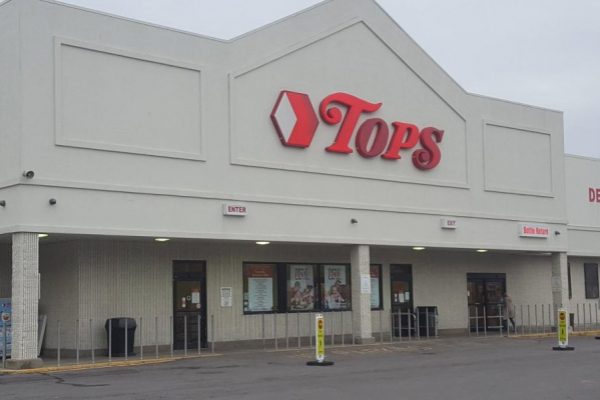SYRACUSE, N.Y. (NCC News) – When Syracuse University junior Kate Carniol woke up to the email on Wednesday morning, she thought that in-person classes were about to be canceled.
“I’m really worried that these tests are gonna come back and it’s gonna be the part where we get sent home,” she said.
The email from the SU Covid Office, detailing a new round of COVID-19 testing for all residents of South Campus, required everyone to go to the Skybarn between 10 a.m. and 4 p.m. for another round of pooled saliva testing for the novel coronavirus. This happened just four days after SU completed its scheduled round of school-wide testing that finished Friday, Sept. 18.
While SU has promised random testing will occur throughout the semester, the reason for this sudden round of required testing was not a coincidence. SU monitors wastewater as part of its COVID-19 plan to open the campus for the fall 2020 semester. Joe Hernon, the director of emergency management for the university’s COVID response team, is in charge of responding to traces of the virus found in wastewater testing.
“As we were monitoring that process we saw that there was a spike [in traces of COVID-19],” he said.
Hernon clarified that the spike wasn’t as much virus as was found in the wastewater of Ernie Davis Hall earlier in the month, an event that forced the immediate quarantine of the entire residence hall. However, he did think it was prudent to begin immediate mandatory testing of South Campus residents.
“This is one of these pop-up events that come along as we’re monitoring along the line, we see a spike, and we need to react to that spike, and this is the reaction,” he said.
The email did not mention that the required testing was the due to a trace of virus in wastewater, and said only that it was a “precautionary measure.”
Some students said the testing process was sudden and disruptive for many students because the university sent the email late Tuesday night. Sophomore Helen Perez had to change her whole day to make sure she got tested.
“Having to take a break from what I was doing to come here actually affected my timeline,” she said. “I don’t think this was a good idea, just doing it so quick, but I guess that’s the availability they had.”
Carniol was luckier. She had a break between classes during which she could come back to South Campus and get tested. In the email announcing the tests, the university said they would keep a register of who got tested and who did not, and required students to bring their SUID and get checked off after they turned in their test.
Both Carniol and Perez said they were confident in the university’s plan. They said they liked the testing the school is conducting, both before students arrived and throughout the semester. Carniol compared SU’s response favorably to that of UNC Chapel Hill, which had to shut down residential instruction after just eight days of class and did not require proof of a negative test for students to return to campus.
Both students said there still is a sense of unease looming over the semester. They are worried about the potential of an outbreak on South Campus, especially from students not following guidelines.
“I’ve heard of a lot of people who are quarantining on South not really following those rules and you see a lot of people too just going out without their masks on, being pretty unsafe,” Carniol said.
Hernon acknowledged that this is a possibility. But he said the university’s way of getting ahead of any potential outbreak is the speed of testing and the requirement for all South Campus students to get tested.
“We’d rather be cautious and forward-leaning and test and get the data so we can make accurate and informed decisions,” he said.
The tests will be sent to a lab with the results to be returned in two to three days, where Hernon and SU’s response team will decide where to go from there.




